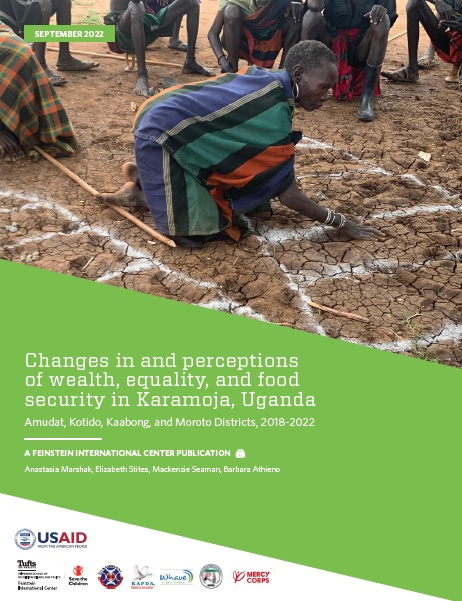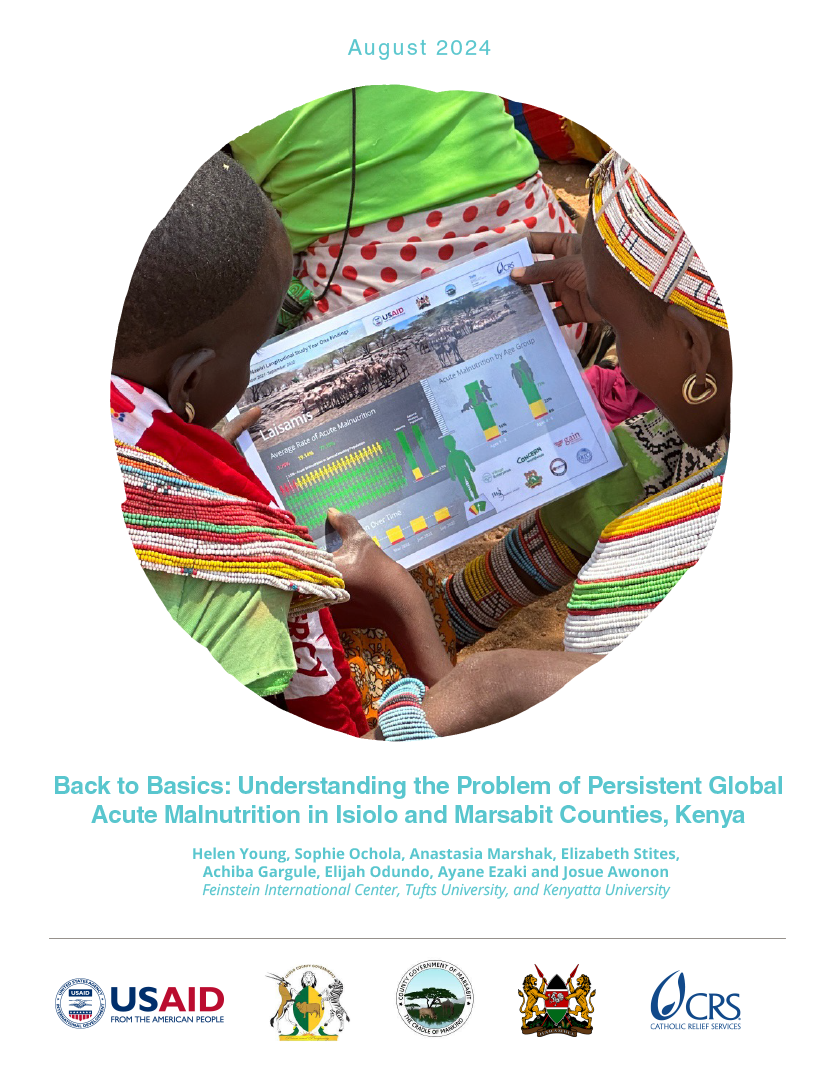This study aimed to better understand changes in and perceptions of wealth and equality, with considerations for food security, market access and quality, and Apolou programming in selected communities in four districts in the Karamoja sub-region of Uganda.
Drawing on data from five consecutive years of data collection, we found that increases in wealth and equality remained inconsistent and at times illusive across and between communities, with people’s lives improving in some ways but not in others. Wealth decreased in the study population when measured through livestock and asset ownership, and many people took up livelihood activities associated with poverty, including casual labor, collection and sale of bush projects, and brewing traditional beer. Food security data similarly depicted an overall deterioration, as did market quality.
The data revealed important evolutions and reasons for optimism, as well. The reflections over a ten-year period from the qualitative participants painted a more favorable picture in terms of wealth and equality, with these changes associated with improved security and livelihood opportunities. Households and individuals are beginning to view wealth in non-traditional ways, including beyond livestock ownership. These new conceptions may point to new avenues for programming and development. Further, trends in wealth, equality, food security, and market access were often specific to the four districts, with improvements in some districts and declines in others. These differences highlight the need for district-specific programming.
The study was conducted under the Apolou Activity, in partnership with Mercy Corps and funded by USAID/BHA. This mixed methods study took place in four districts: Amudat, Kotido, Kaabong and Moroto. We collected three rounds of survey data with approximately 500 households and four rounds of qualitative interviews with the same 75 young men and women.







